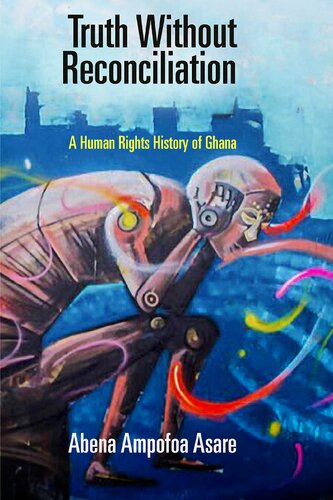

Most ebook files are in PDF format, so you can easily read them using various software such as Foxit Reader or directly on the Google Chrome browser.
Some ebook files are released by publishers in other formats such as .awz, .mobi, .epub, .fb2, etc. You may need to install specific software to read these formats on mobile/PC, such as Calibre.
Please read the tutorial at this link: https://ebookbell.com/faq
We offer FREE conversion to the popular formats you request; however, this may take some time. Therefore, right after payment, please email us, and we will try to provide the service as quickly as possible.
For some exceptional file formats or broken links (if any), please refrain from opening any disputes. Instead, email us first, and we will try to assist within a maximum of 6 hours.
EbookBell Team

4.3
18 reviewsAlthough truth and reconciliation commissions are supposed to generate consensus and unity in the aftermath of political violence, Abena Ampofoa Asare identifies cacophony as the most valuable and overlooked consequence of this process in Ghana. By collecting and preserving the voices of a diverse cross-section of the national population, Ghana's National Reconciliation Commission (2001-2004) created an unprecedented public archive of postindependence political history as told by the self-described victims of human rights abuse.
The collected voices in the archives of this truth commission expand Ghana's historic record by describing the state violence that seeped into the crevices of everyday life, shaping how individuals and communities survived the decades after national independence. Here, victims of violence marshal the language of international human rights to assert themselves as experts who both mourn the past and articulate the path toward future justice.
There are, however, risks as well as rewards for dredging up this survivors' history of Ghana. The revealed truth of Ghana's human rights history is the variety and dissonance of suffering voices. These conflicting and conflicted records make it plain that the pursuit of political reconciliation requires, first, reckoning with a violence that is not past but is preserved in national institutions and individual lives. By exploring the challenge of human rights testimony as both history and politics, Asare charts a new course in evaluating the success and failures of truth and reconciliation commissions in Africa and around the world.